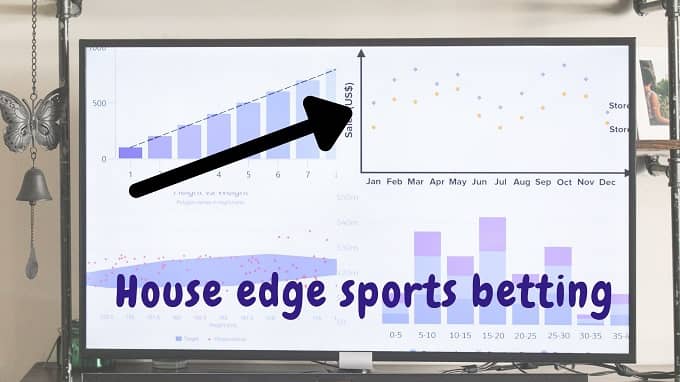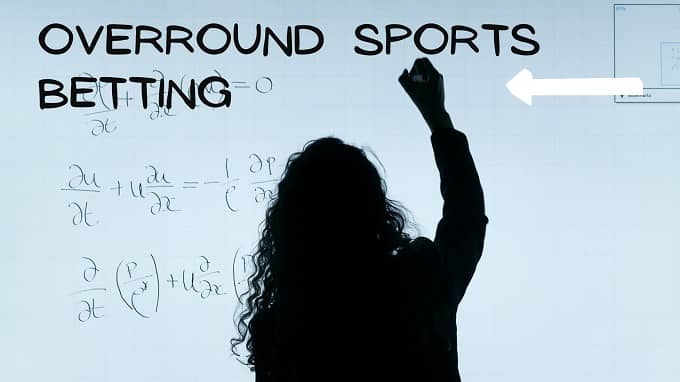Are you curious how the bookmaker and casino calculate their odds? Aside from that, you are curious about the math behind casino betting odds and gambling. Well, you are not alone. We all get curious about this thing, most especially about bookmaking mathematics.
What is bookmaking?
Bookmaking is the practice of placing bets on different possible outcomes of an event. It is a gambling practice that determines the odds. In addition, it is a practice of receiving and paying off bets on the outcome of a sporting competition. It can either be:
- Horse racing
- Football
- Baseball
- Basketball
- Football and other competitions
The “bookmaking” term originates from the practice of recording the bets in a ledger (book). In short, it is the practice of making a book. A bookmaker or bookie is the person whose job is to take your money when you bet. And then, he will also pay you if you win. In return for this service, they receive a margin (fee for their service). Thus, their goal is to make a profit out of bookmaking.

Bookmaking: How does it work?
To make successful bookmaking, you need to build margins into the odds. Then, the bookmaker will balance the book. Therefore, no matter who wins the stake, the bookmaker will make a profit.
Furthermore, the odds are not simply set to reflect the probabilities of an outcome. It also reflects the bookies’ exposure. Any fixed odds aim to ensure that each outcome is backed in the right proportion. Therefore, the bookmaker will still make a profit whatever will be the result of the event. It means that you can often find good value odds if you are going to be against the odds.
Different types of odds in Sportsbook – Bookmaking Mathematics
Fractional Odds – it is usually written in a fractional form. It refers to the net total that you will get if you win.
Moneyline Odds – these odds differ between the underdogs and favorites. So, if you are going to bet on the favorite, you will usually see the odds written down with a “-” sign. Therefore, the odds for underdogs are written down with a “+” sign.
Decimal Odds – the quoted figure is the exact amount that you will get if you win.
Bookmaking Mathematics: How does the Bookmaker calculate the odds and the markets price?
Ironically, bookmakers do not want to gamble on one outcome over the other. That is why they make sure that the odds are balanced. So, they set the market prices in a way of reducing the variance. At the same time, ensures that they will still make a profit while roughly reflecting the real probability of an event happening.
The mathematics behind bookmaking is to balance the profit while ensuring that the bettors will still get attracted to bet on the outcome. To do this, the bookmaker will start by setting their margin. Then, they will set the odds for the various outcomes of the event. Vig or Overround is the margin built into a bet. (Later on, we will discuss further discuss, how they work in bookmaking.)
After setting the odds, the betting company will now calculate the likelihood of each outcome from happening. Then, they will subtract the margin. Let’s say the real probability of an event is 2/1, then. The bookmaker will subtract their 5% margin. Therefore, the real odds now will be 19/20.
The odd traders and bookmakers calculate the real probabilities based on:
- Form
- History
- Statistics
- Their own opinion
Notably, the more data they gather, the more likely the bookmaker’s odds are going to reflect on the real probability. If an event has not occurred before, therefore, fewer data are presented on the outcomes. Thus, the bookies will be more cautious about setting their odds. Likewise, their odds will be lower than the real probability.

How does bookmaker set their market price? – Bookmaking Mathematics
To understand the odds of pricing, you need to think of an event with only two possible outcomes. For example, you are going to bet on which team will kick off the match. We all know that it’ll be based on the flip of a coin. Therefore, the probability will be 50/50. Thus, most punters will think that the odds should be evens for the two outcomes. However, the odds will never be that way. For the reason that this is where the bookies will build their profit margin.
Let us say, the bookmaker gives an odds of 10/11 on each team to kick off. So, if we are going to place a $50 bet on each team to kick off, it’ll cost us $100. Thus, the maximum return will be $95.50. This is because the margin is deducted from your winnings, which is 4.5%. That is if the bookmaker balanced the book, when you are playing at Singapore online casino.
The probability is the only factor that affects the odds of pricing of a online casino in Singapore. Notably, bookies do not set their odds based solely on real probabilities. They also think about how their punters will place a bet on each outcome. Doing so, it allows them to balance their book.
Usually, major sporting events tend to have the lowest margins because of the head-to-head market. Thus, it usually goes between two to five percent only. However, the margin on more exotic lines can go up to 20%. Also, markets that have multiple outcomes, it needs further calculation.
Vig, Vigorish, Edge, Juice, and Overround: How do they work?
To further understand the bookmaking mathematics, you need to further understand the details of house edge sports betting in Singapore.
The VIG, VIGORISH, or OVERROUND – The bookmaking mathematics
It is the process wherein the bookmaker balances the wagers placed on all the possible outcomes of an event. Therefore, they can make a profit no matter what the outcome will be. In reality, perfecting a balance book is rarely possible. Therefore, bookmakers tend to have liability one way more than the other.
In this case, the bookmaker changes the odds lines in a run-up to an event. So, they can attract bets that have less exposure while discouraging more bets on lines that are over-exposed. Vig also refers to the amount charged by the bookmaker for taking the stakes from the punter.
VIG VS. OVERROUND: What is the difference?
Vig refers to the percentage profit a bookmaker makes from all the stakes placed in an event. On the other hand, overground refers to the maximum profit built into a book by adjusting the odds. It refers to the overall market the bookies are offering. It also refers to how much profit they will make whatever the outcome will be at top online casino in Singapore.

How to calculate the bookies’ profit margin?
To understand the betting edge, you must know how bookmakers calculate their profit margin. In any sporting event where the odds are unequal, there is an easy bookmaking mathematics formula to calculate the profit margin.
Let us say there are five outcomes in an event with odds A, B, C, D, and E. Then, the formula will be:
((1/A) + (1/B) + (1/C) + (1/D) + (1/E) ) X 100 = margin
To calculate this, you must convert the odds into decimals. Let us say you are betting on a horse race and the odds are:
- Rusty Rocket –33
- Native Falls –0
- Landing Light –50
- Desert Command –0
- Flicka Boy –50
((1/2.33) + (1/10) + (1/3.5) + (1/5) + (1/6.5)) x 100)
(0.4291 + 0.1 + 0.2857 + 0.2 + 0.1538) x 100)
(1.1686 x 100) = 116.86
The overall margin on this race is therefore 116.86 – 100 = 16.86%
After that, the bookmaker will balance the bets on each line. This is similar to the proportions in the formula.
The Betting Edge: How the odds prices respond to betting?
As we have said, the real probability of an event occurring is the only factor when setting odds. Therefore, the bookmaker makes a rough prediction on the probability and then adds their margin afterward. If everyone will bet on just one of the outcomes, then the money will be skewed in one way only. To balance the book, the bookmaker will increase their margin on the popular line. Therefore, the punters will stop betting on it. They will also reduce their margin on the less popular line. Therefore, the punters will encourage betting on it.
What is house edge sports betting? – Bookmaking Mathematics
Heavy betting on one outcome can entirely move the markets. In addition, this can happen at big horse racing events. However, the bookmaker does not allow this to happen. Instead, they will profile their customer base. Then, they will attempt to predict which lines and markets would be the favorite.
Notably, the more outcomes there are, then the harder it will be for the bookmaker to balance their book. That is why multiple-choice markets tend to have higher margins.
Bookmaking Mathematics FAQs:
How does bookmaker set their odds?
To set the odds, the bookmaker will calculate the probability of an outcome occurring. Then, they will subtract their margin. Let us say the real probability is 2/1, the bookmaker will then subtract their 5% margin. As a result, the real odds will be 19/10.
How do bookmakers always win?
The reason behind why does the bookies have always been successful is because of their VIG which will they take from the losing side of each bet. Notably, Vig does not guarantee that the bookmaker wins. Instead, it gives them the guarantee that they will still make a profit whatever the outcome will be. Usually, Sportsbook collects 2%-40% vig from the bets.
How do bookies work?
The bookies will take money in whenever they lay a bet on the punter. Then, they will pay money every time their customer wins. The idea here is to make more money than they give away. Bookmakers cannot control the outcomes of the event from happening. However, they can control how much money they stand to lose or win on any results.






